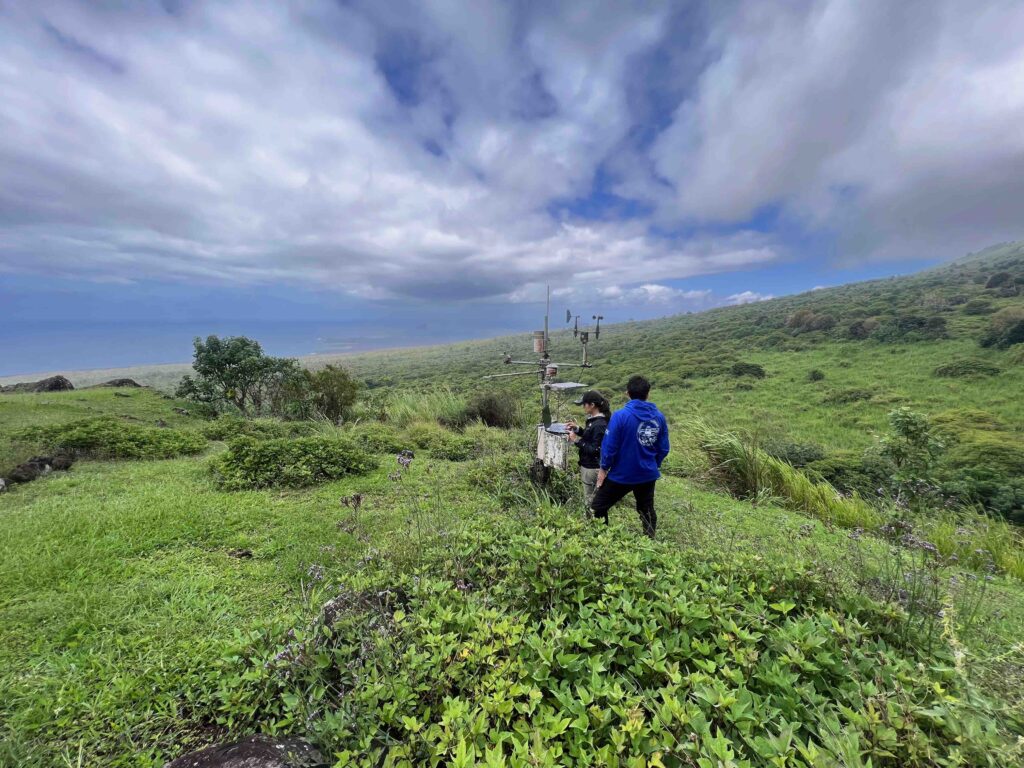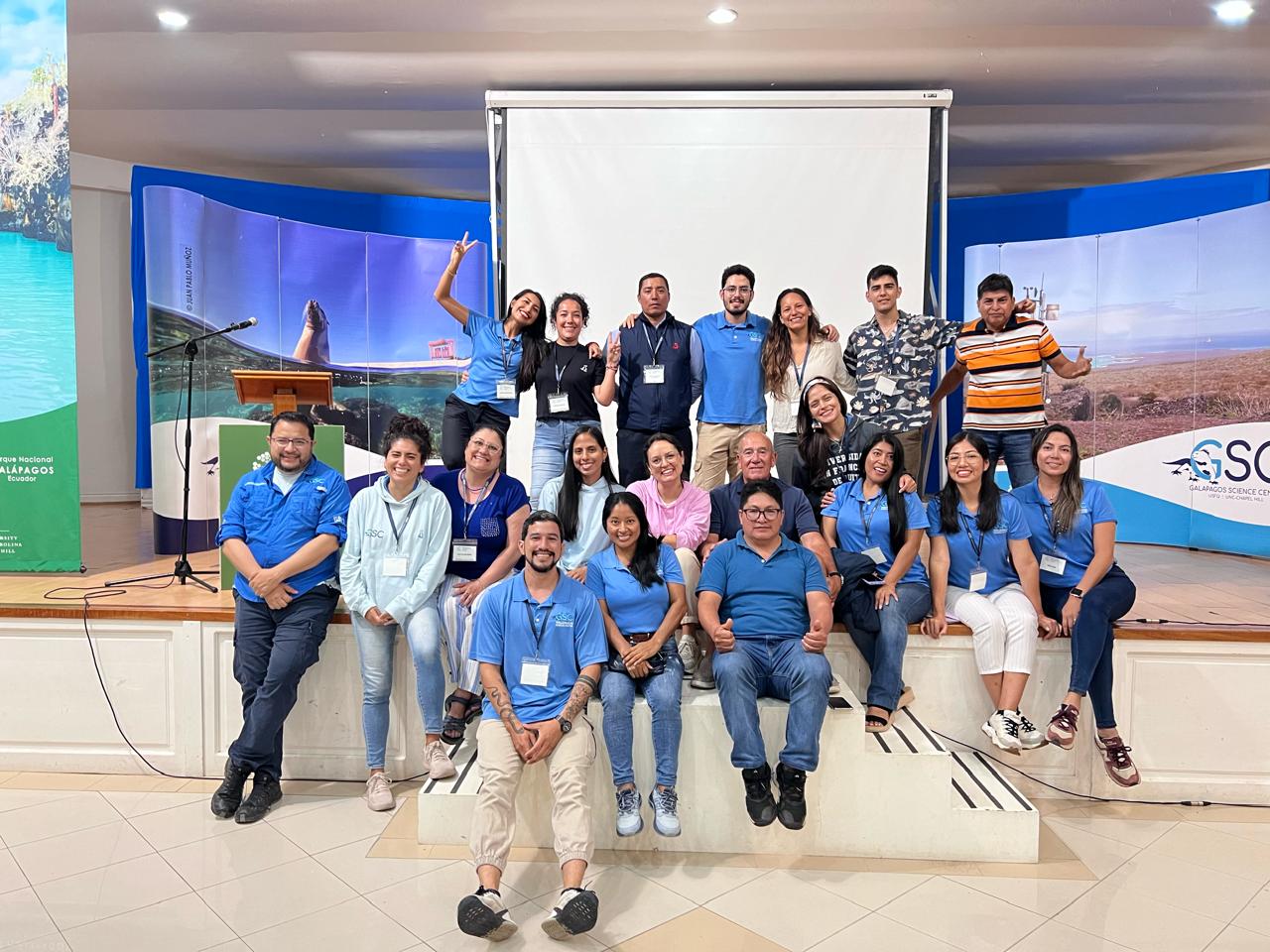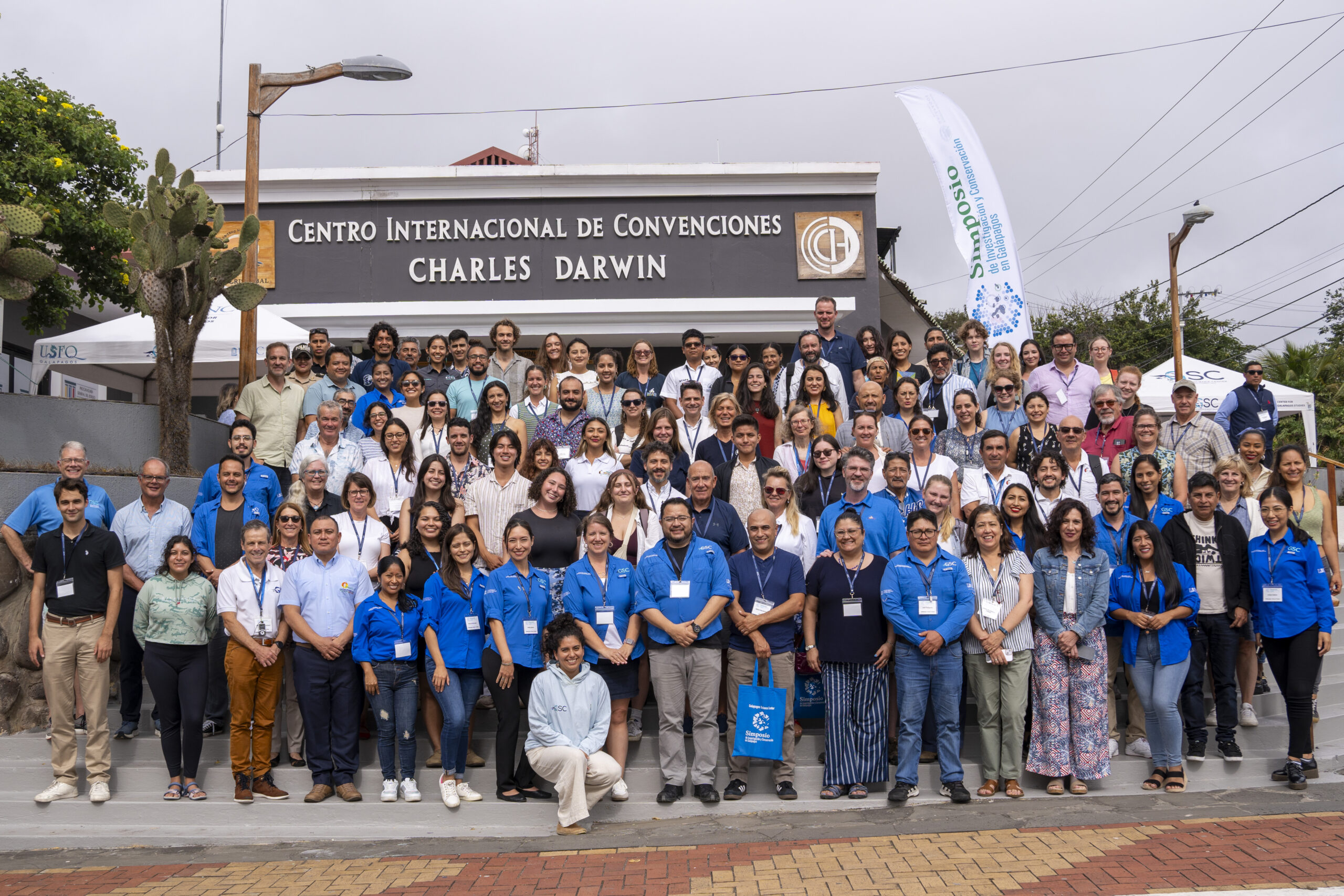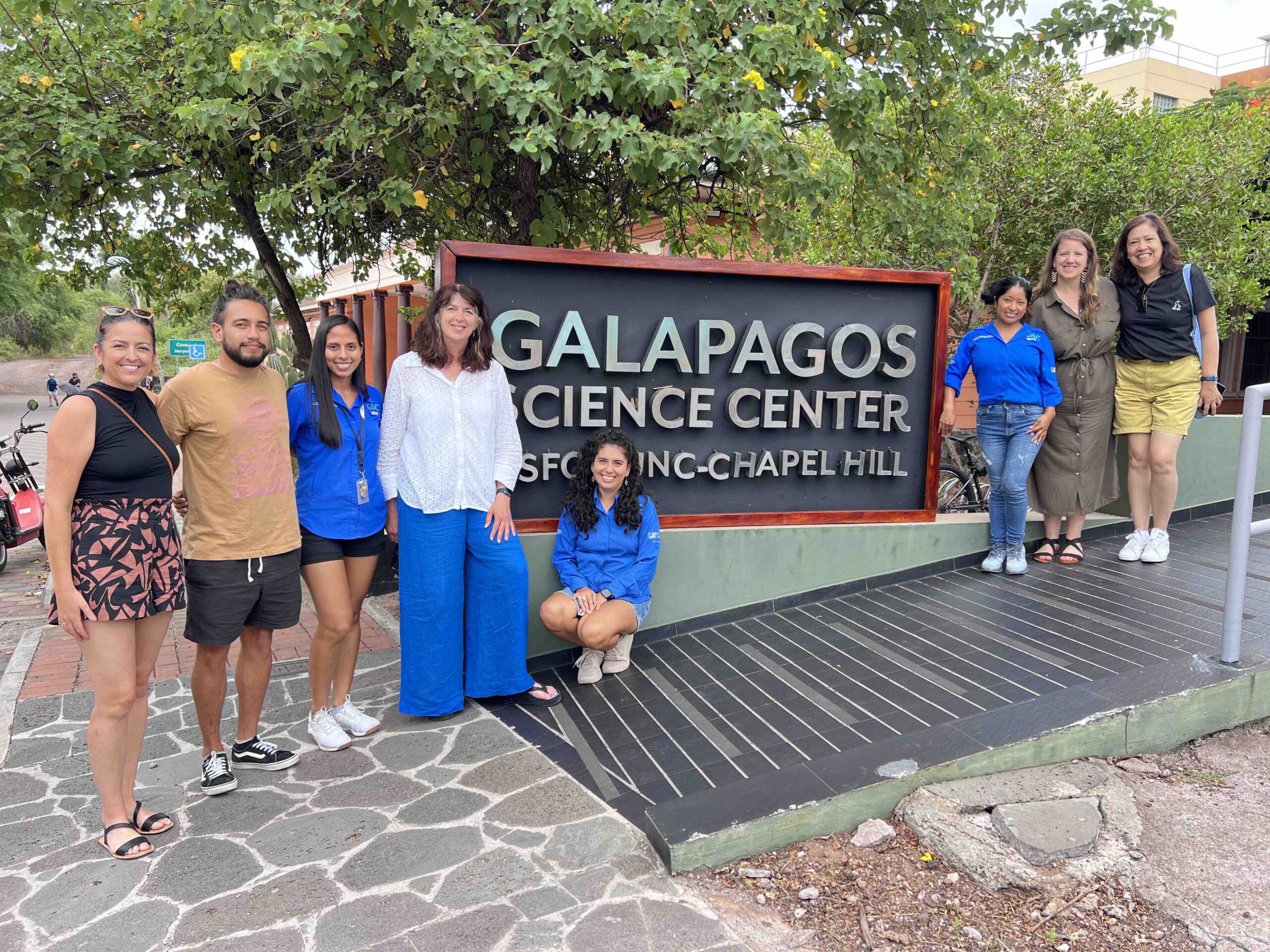- The Gálapagos Data Hub promises to revolutionize environmental conservation by offering a digital geographic research tool that gathers, analyzes, and shares crucial geospatial information for the sustainable management of the Galápagos Islands.
- From scientists and researchers to tourism companies and educators, the Galápagos Data Hub provides access to valuable data and powerful tools, democratizing knowledge and fostering collaboration among a wide range of stakeholders interested in the conservation of Galápagos.
- With web applications such as the 3D Viewer, Weather Dashboard, and spatial data repository, the Galápagos Data Hub not only offers access to data but also provides innovative tools to explore and understand the environment of the Galápagos Islands, thus driving research and environmental awareness.
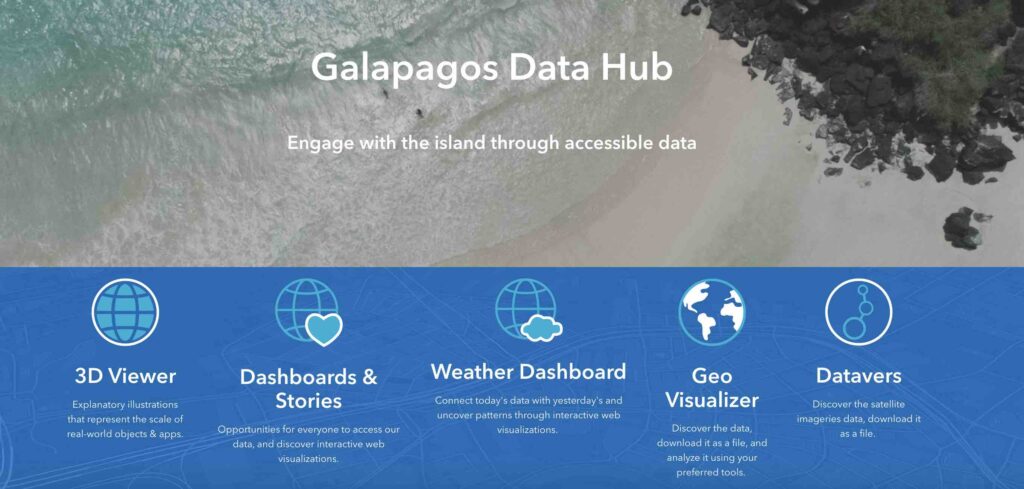
The archipelago of the Galápagos Islands, globally recognized for its extraordinary biodiversity and relevance to science and conservation, takes a significant step into the future with the introduction of the Galápagos Data Hub. This innovative project, developed by the Institute of Geography at USFQ and the Galapagos Science Center (a joint initiative between the Universidad San Francisco de Quito and the University of North Carolina at Chapel Hill), promises to revolutionize how geospatial information is collected, shared, and utilized in the region. This digital center offers advanced tools for data analysis and visualization.
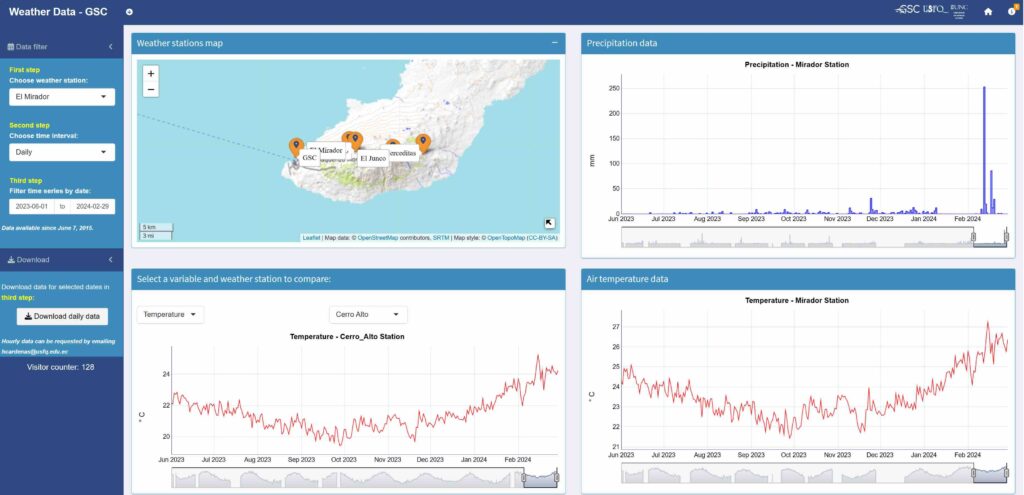
What is the Galápagos Data Hub?
The Galápagos Data Hub is a modern, cloud-based data repository that positions itself as an essential resource for researchers, scientists, government authorities, tourism companies, educators, and media. This digital center not only centralizes geospatial information from the Galápagos Islands but also offers advanced tools for its analysis and visualization.
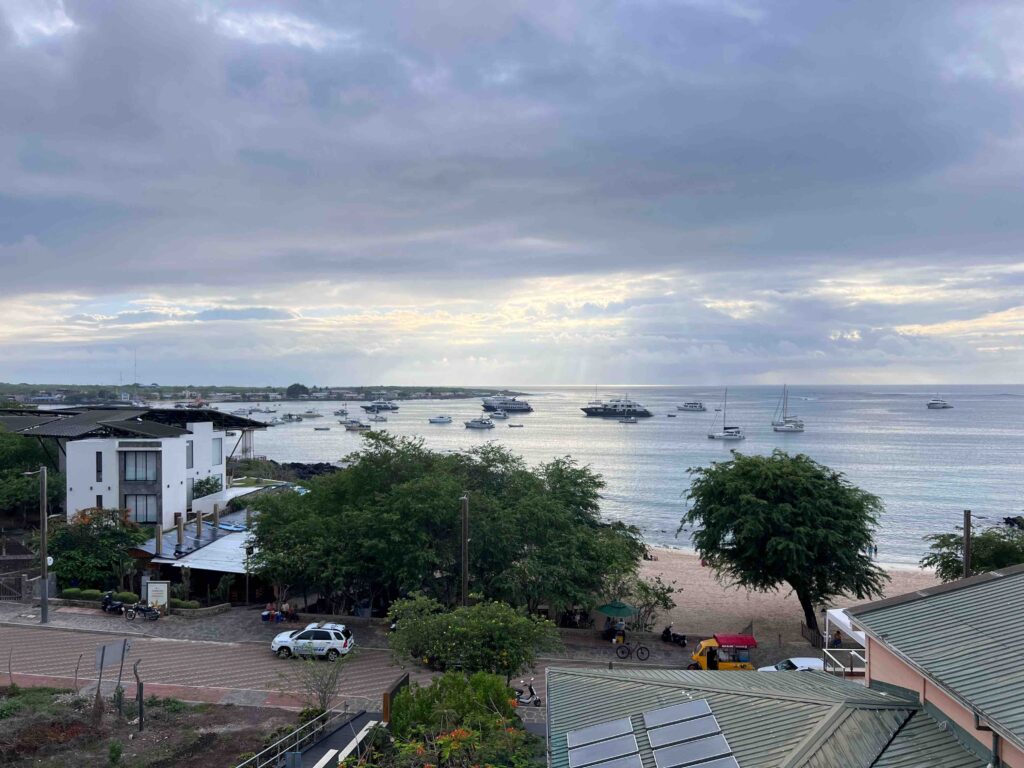
Who can use the Galápagos Data Hub?
Targeted at a wide range of users, from scientists to students, the Galápagos Data Hub provides access to valuable information that can be used for a variety of purposes. Researchers can leverage the data for studies on land cover, ecology, and conservation, while government and public entities can employ it for territorial planning. Tourism companies can benefit from itinerary planning and promotions, while educators and media can use it for educational and informational purposes.
Explore the Galápagos Data Hub and its five main segments for data exploration and analysis:
- 3D Viewer: Allows users to immerse themselves in 3D virtual tours, where they can discover stunning views and analyze study areas with tools that calculate areas, distances, and generate altitude profiles of points of interest.
- Dashboards and Stories: Provides statistics through charts, tables, curves, and dynamic maps based on scientific publications by researchers associated with the Galapagos Science Center and the Institute of Geography at USFQ.
- Weather Dashboard: Offers visualization and free download of precipitation and atmospheric temperature data from five weather stations located on San Cristóbal Island. Data is provided from 2015 to the present.
- Geovisualizer: A repository of spatial data that allows visualization of maps such as urban land cover or urban land use, agroecosystems, invasive species, migration, and drone-taken images, among others, along with brief descriptions referring to each cover that familiarizes users with the data.
- The Dataverse: A data repository created in collaboration with the Galapagos Science Center and the University of North Carolina at Chapel Hill (UNC), which shares information, such as satellite images and orthophotos, with descriptions to facilitate their download.
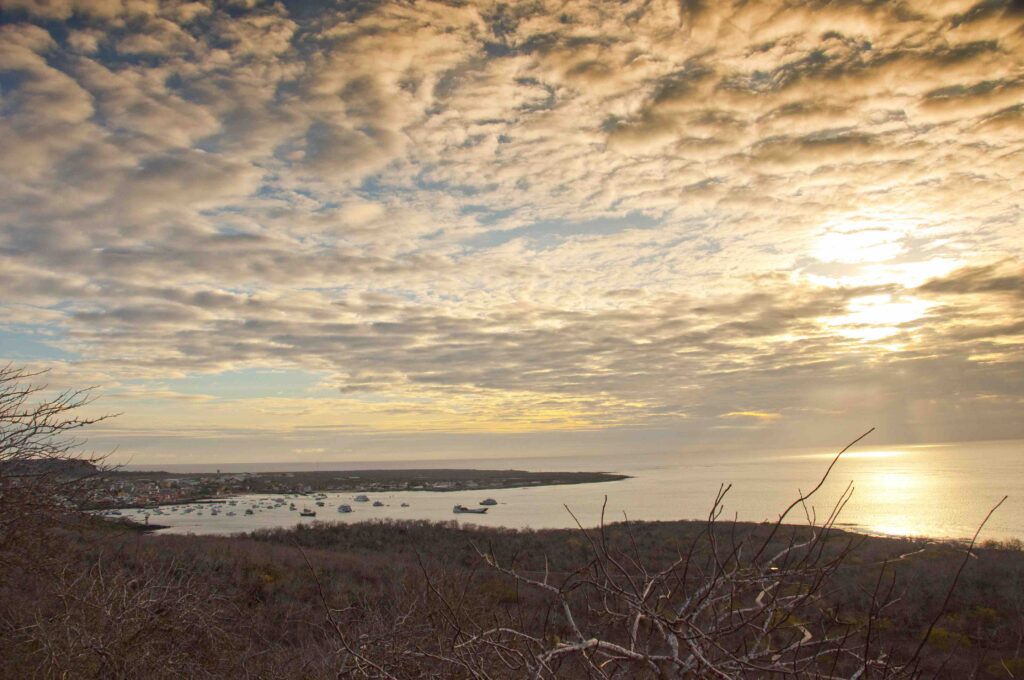
The Galápagos Data Hub represents a significant advancement in environmental conservation and responsible use of natural resources. By providing free and easy access to tools that enable working with geospatial data, this project not only strengthens research and informed decision-making but also promotes collaboration among diverse sectors interested in sustainable development and conservation of the Galápagos Islands.
Learn more about the Galápagos Data Hub at: https://galapagoshub.usfq.edu.ec/

